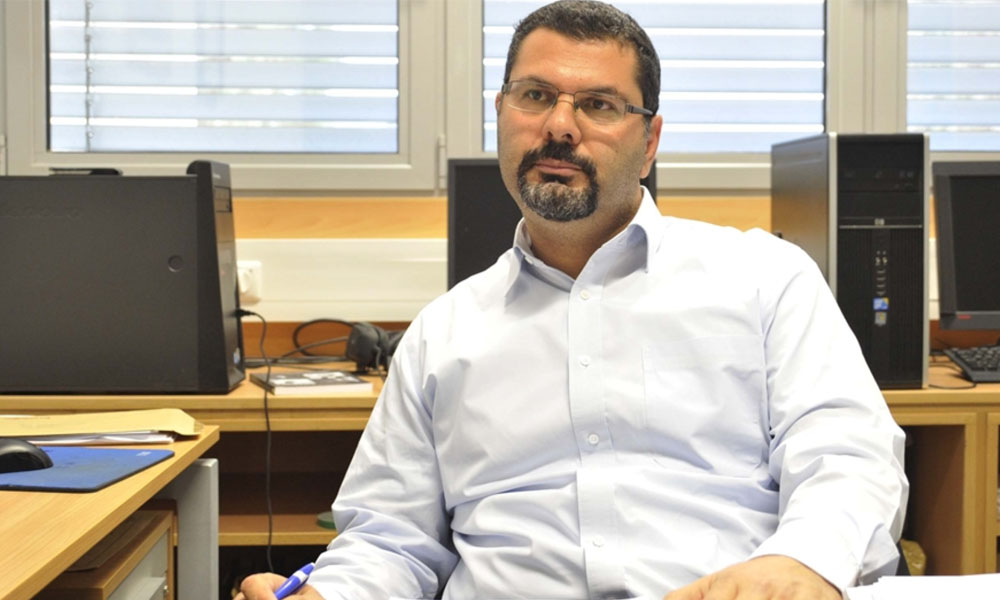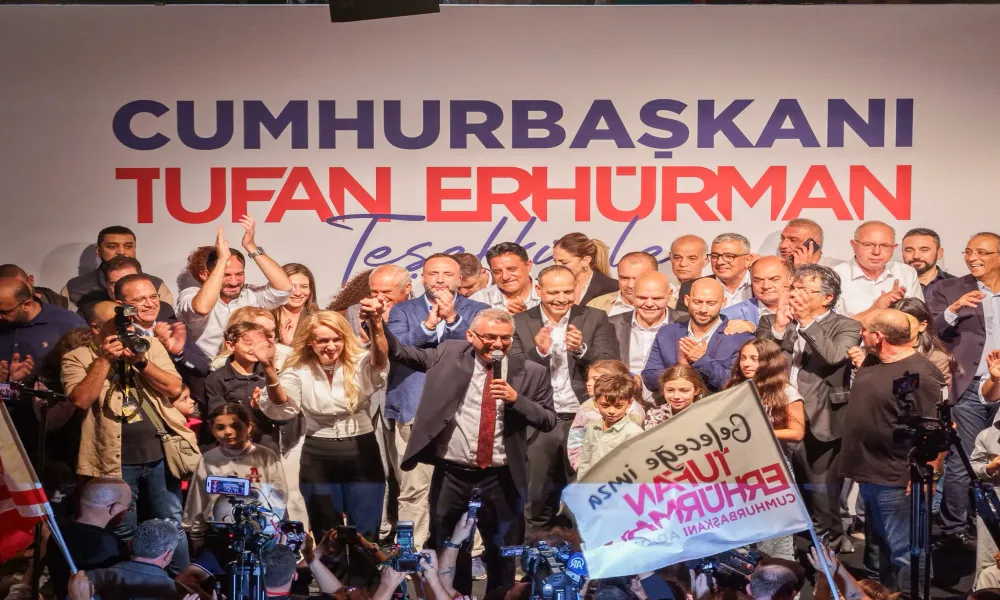On the Greek Cypriot side, the elections in the north are often dismissed, ignored, or described as illegal, with many insisting that the key to any development lies only in Ankara. Yet Erhürman’s success, securing 62.76 percent of the vote against Ersin Tatar’s 35.81, tells a more complex story. Behind those numbers stands a society under pressure, facing economic isolation, political dependency, and existential anxiety about its future.
Some of the Greek Cypriot parties’ reactions spoke of messages sent by the people in the north. They pushed away the notion of two states, voted for unity, and expressed a desire for change and political determination. Many recognised that Tufan Erhürman offered a more strategic and credible approach to their problems, one that came across as practical and result-oriented.
The behaviour of voters in the north, facing existential issues of isolation and even extinction, once again shows that they are pragmatic. When they do not see results, they shift, seeking ways out of isolation through European frameworks and realistic policies.

To understand what really happened on 19 October 2025 and what it means for the Cyprus issue, Politis to the Point spoke with Professor Charis Psaltis of the University of Cyprus, lead author of a new study conducted between 2 and 17 October 2025, together with Neophytos Loizides (University of Warwick), Eliz Tefik (LIPA Consulting Ltd), and Nikandros Ioannidis (Cyprus University of Technology).
A turning point in the Turkish Cypriot political landscape
In these elections, 218,313 registered voters had the right to vote, and turnout reached 64.8 percent. Ersin Tatar received 35.8 percent, while Tufan Erhürman received 62.8 percent and was elected from the first round. Six minor candidates shared 1.4 percent.
The survey by Psaltis, Loizides, Tefik, and Ioannidis showed that undecided voters, around 14 percent, eventually broke toward Erhürman, and that a hidden vote also existed, possibly due to perceived pressure from Turkey to support the incumbent.
Erhürman, according to the research, held the broadest cross-sectional appeal, combining urban progressives, middle-class reformists, and pragmatic Turkish Cypriot nationalists, and benefited from visible momentum in polls and networks. While structural limits and external influence from Turkey remain, the political atmosphere is shifting toward change.
The electorate signalled fatigue with the status quo, disillusionment with the two-state solution, and openness to re-engagement within a federal, European, and UN framework, which ultimately led to the landslide victory of Tufan Erhürman.
Interview with Professor Charis Psaltis

Professor Psaltis, many in the south dismiss these elections as illegal. Why do you think they are important to study?
Because they reveal how Turkish Cypriots think and behave politically under conditions of dependency and limited recognition. You cannot claim to support reunification and at the same time ignore what two-thirds of the voters in the north are saying through their ballot. These results show political maturity and a desire for agency.
What does the 62.8 percent victory of Tufan Erhürman tell us about voter sentiment?
It tells us that the electorate wanted change. Erhürman’s message combined credibility, professionalism, and a clear pro-federal vision that matched a growing disillusionment with the two-state idea. Many voters were tired of stagnation and felt that the current path offered only deeper isolation.
You mention a hidden vote. How do you interpret that?
During our fieldwork we noticed that some respondents were reluctant to express opposition to Tatar or Turkey’s influence. But the final results show that these people still voted for Erhürman. That hidden vote indicates quiet resistance and a wish to reclaim political independence.

What were the main concerns shaping voter choices according to your data?
The economy came first at 26.7 percent, followed by the Cyprus issue at 25.4 percent, corruption at 16.1 percent, and the health system at 13.2 percent. The depreciation of the Turkish lira, inflation, and frustration with governance pushed even parts of Tatar’s base toward Erhürman.
How did voters view different settlement models for the Cyprus problem?
A unitary state was rejected by 61 percent. Both the bizonal bicommunal federation and the two-state model had majority support, around 55 percent each. However, Erhürman attracted those rejecting both the status quo and the two-state formula.
In comparison with 2020, rejection of the status quo almost doubled from 20.8 to 36 percent, while support for the two-state idea dropped by about 15 points. This shows a turn toward pragmatic federalism.
What were the main drivers behind Erhürman’s momentum?
Four elements stood out. First, his consistent pro-solution stance aligned with the electorate’s fatigue with division. Second, the economic crisis made people look for more credible management. Third, frustration with Ankara’s oversight created a demand for balanced relations and for safeguarding the secular identity of the Turkish Cypriot community. And fourth, governance credibility. He was perceived as professional and moderate, and drew support even from HP, DP, and UBP voters.
Was there a difference between private and public-sector voters?
Yes. Private-sector professionals leaned strongly toward Erhürman - about 60 percent - favouring reform and meritocratic governance. The public sector leaned slightly toward Tatar. This suggests that those with greater economic autonomy tend to prefer political autonomy too.

Your peace-package experiment tested preferences for different settlement scenarios. What did you find?
Respondents preferred parliamentary to presidential systems and opposed large territorial concessions, particularly on Morphou. They favoured joint renewable-energy projects and were open to regional cooperation that included Turkey. This shows pragmatism and a focus on economic viability.
After this election, what message should the Greek Cypriot side take?
To listen. This was not only Erhürman’s victory but an expression of a society that still believes in democratic change. The message is that Turkish Cypriots reject the status quo and the two-state idea and want a realistic, European-based solution. If the south continues to ignore such signals, it risks missing another historic opening.
And your own takeaway as a social psychologist?
Despite isolation and pressure, Turkish Cypriots continue to act politically and think critically. They are not passive actors. Their participation, their choice, and the way they navigated fear and dependency show resilience. Understanding that behaviour is essential if we are serious about a reunited Cyprus.
